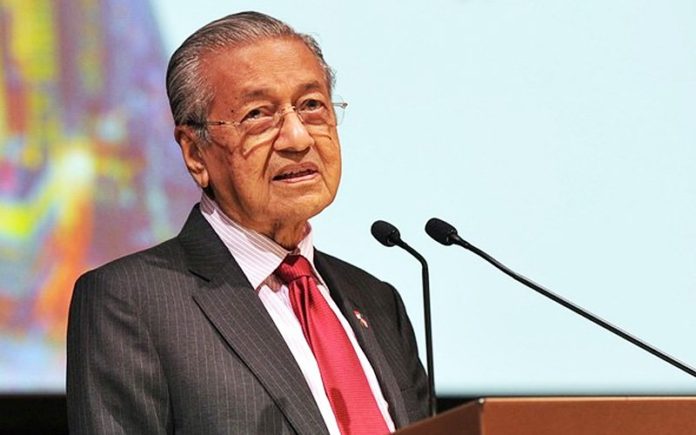SINGAPORE: Trade tensions between the United States and China will trigger a “domino effect” of protectionist measures, Malaysia warned on Tuesday as Asian leaders gathered for a summit overshadowed by the tit-for-tat tariff war between Washington and Beijing.
The comments by Prime Minister Mahathir Mohamad in Singapore came as China’s premier – for a second day – struck a conciliatory note on the trade spat, saying he was hopeful that the two sides will find a way to prevent it escalating further.
“I still hope we can hold talks based on mutual respect, balance and mutual benefits to resolve the issue. There are no winners in a trade war,” Premier Li Keqiang said at a function ahead of a meeting with leaders of the Association of Southeast Asian Nations (ASEAN).
US Vice President Mike Pence will attend the Singapore meetings instead of President Donald Trump, who has repeatedly panned existing multilateral trade pacts as unfair and has railed against China over intellectual property theft, entry barriers to American businesses and a yawning US trade gap.
“The trade tension between the two world powers is bound to create a domino effect that will affect trade reactions and will be a reason for other developed countries to adopt protective measures against developing countries, including the ASEAN countries,” Mahathir told a business forum.
He said “the rise of trade protectionism, resurgent nationalistic movements and inward-looking policies” seemed to be emerging even among the 10 nations of ASEAN.
That was echoed by summit host Singaporean Prime Lee Hsien Loong, who told a welcome ceremony for his ASEAN counterparts that “the international order is at a turning point”.
“The existing free, open and rules-based multilateral system, which has underpinned ASEAN’s growth and stability has come under stress,” he said, adding that it was unclear if the international order would break up into rival blocs.




